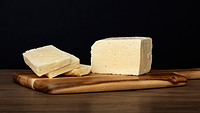FDA to Pause Non-Toxigenic E. coli Raw Milk Cheese Testing Until Further Review

Due to questions and concerns about the U.S. Food and Drug Administration’s (FDA’s) testing of raw milk cheese for the presence of non-toxigenic E. coli, the agency is pausing those efforts to embark on a new review of current testing practices.
The current methods of raw milk cheese testing, used not only by the FDA but also by other U.S. public health agencies as well as other countries, is necessary to detect the presence of fecal contamination. The reason that the FDA tests cheese samples for non-toxigenic E. coli is that bacteria above a certain level could possibly indicate unsanitary conditions in a processing plant. According to the agency, surveillance sampling has shown that the “vast majority of domestic and imported raw milk cheeses are meeting the established criteria.”
The FDA’s new efforts are based on cheesemakers’ concerns about the agency’s new safety criteria. The cheesemaking industry’s concerns are centered around the application of the test results and the scientific foundation of these criteria. They believe that current testing practices will hurt their industry by limiting the production of raw milk cheese while offering no benefit to the overall state of public health.
Since the Preventive Controls for Human Food rule mandated by the Food Safety Modernization Act was finalized last year, the FDA sees fit to take a fresh look at what role non-toxigenic E. coli should have in identifying and preventing unsanitary conditions and food safety hazards for both domestic and foreign cheesemakers.
Upon completion of their review, the FDA may or may not update the 2010 Compliance Policy Guide--a document that outlines applicable safety criteria and the industry will be notified at that time. In the meantime, the agency will continue to inspect cheese-making facilities and test for pathogens in domestic and imported cheese. However, the testing program for non-toxigenic E. coli in cheese is on hold.
Sign up for Food Safety Magazine’s bi-weekly emails!
Looking for a reprint of this article?
From high-res PDFs to custom plaques, order your copy today!





